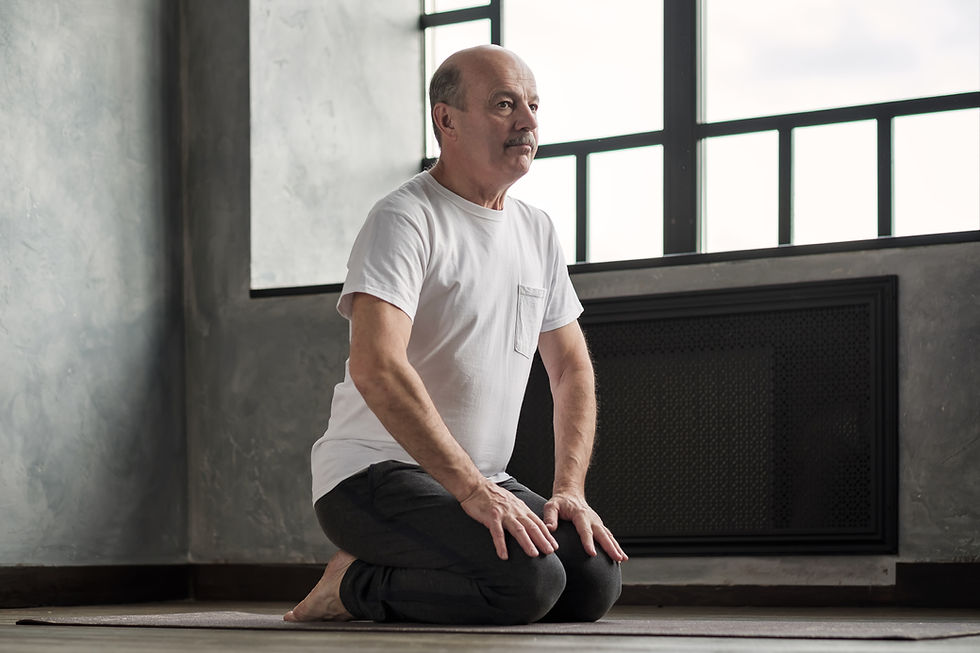Listening to Your Body: A Crucial Habit
- Paul Smeaton
- Jul 2, 2024
- 3 min read
Updated: Jun 3, 2025

In the journey towards weight loss, many people focus intensely on diet plans, exercise routines, and the number on the scale. While these elements are undoubtedly important, there's a critical, often overlooked aspect of weight loss: regularly checking in on your body. This practice is not just a physical assessment but a holistic approach that includes understanding your body's needs, limitations, and responses to your weight loss efforts. Here’s why this habit is essential for a successful and sustainable weight loss journey.
Understanding Your Body's Signals
Our bodies communicate with us constantly. Hunger, fatigue, pain, and emotional fluctuations are all signals that our body sends to indicate its current state. During weight loss, it’s easy to dismiss these signals in the pursuit of progress. However, ignoring them can lead to burnout, injury, or unhealthy habits. Regular check-ins help you recognise when your body needs rest, more nutrients, or a change in routine. This awareness can prevent overtraining, under-eating, and can help maintain a balanced approach to weight loss.
Monitoring Physical Health
Weight loss can sometimes lead to unintended health consequences if not done mindfully. Regularly checking in with your body allows you to monitor key health indicators such as energy levels, sleep quality, skin condition, and overall well-being. This can help you identify potential issues like nutritional deficiencies, hormonal imbalances, or the early signs of overtraining syndrome. By staying attuned to these factors, you can adjust your diet, exercise, and lifestyle to ensure you’re losing weight in a healthy manner.
Adapting Your Plan
No weight loss plan is one-size-fits-all. As you progress, your body's needs and responses will change. Regular check-ins provide the data needed to make informed adjustments to your plan. Perhaps your initial calorie intake is no longer appropriate as your activity levels increase, or maybe you need to switch up your exercise routine to prevent plateauing. Being in tune with your body helps you make these changes effectively, ensuring continuous progress and avoiding the frustration of stagnation.
Mental and Emotional Well-being
Weight loss journeys are as much mental and emotional as they are physical. Stress, anxiety, and negative self-talk can undermine your efforts and lead to unhealthy behaviours like emotional eating or extreme dieting. Checking in on your body includes assessing your mental and emotional state. Practices like mindfulness, meditation, and journaling can help you stay connected to your body and mind, providing the emotional support needed to sustain long-term weight loss.
Preventing Relapse
Sustainable weight loss is about creating habits that can be maintained long-term. Regularly checking in on your body reinforces these habits and keeps you aware of any backsliding tendencies. By staying vigilant and proactive, you can prevent small setbacks from turning into significant relapses. This continuous self-awareness ensures that you stay on track and maintain the progress you've worked hard to achieve.
Practical Tips for Effective Body Check-Ins
Daily Reflection: Spend a few minutes each day reflecting on how you feel physically and emotionally. Note any changes or patterns.
Weekly Assessments: Conduct a more thorough check-in weekly. Measure your progress with metrics beyond weight, such as energy levels, sleep quality, and mood.
Listen to Pain: Never ignore pain. If you experience persistent discomfort, consult a healthcare professional to prevent injuries.
Adjust as Needed: Use your check-ins to make necessary adjustments to your diet, exercise, and lifestyle. Flexibility is key to long-term success.
Seek Support: If you're struggling to interpret your body's signals, consider seeking help from a nutritionist, personal trainer, or therapist.
Weight loss is a journey that requires patience, dedication, and a deep connection with your body. By regularly checking in on your body, you ensure that your approach is holistic, healthy, and sustainable. This practice not only promotes physical health but also supports mental and emotional well-being, ultimately leading to a more balanced and successful weight loss journey. Remember, your body is your partner in this process—listen to it, respect it, and it will guide you towards your goals.
.png)


